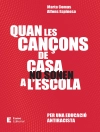Essay from the year 2011 in the subject Pedagogy – Theory of Science, Anthropology, grade: 1, University of Bologna (MIREES – International Research and Studies on Eastern Europe), course: Anthropology of Eastern Europe, language: English, abstract: As a first step I will examine the discipline of anthropology and connect it afterwards with the particularities of postsocialism.
Anthropology may be comprehended to document, analyze, understand and maintain cultural variety of human social arrangements in all their historical diversity. The hallmark of the discipline lies on the understanding of culture. Clifford Geertz emphasises that therefore one has to learn what people think about and to understand the symbols, rituals and meanings that are of importance to them. The difference to other approaches is the focus on webs of meaning. To get to that point, one has to enter the field, directly to the people in order to get a close look from the inside. This nearness brings the advantage that anthropology is also capable to ‘uncontrolled’ aspects. The access in the field to otherwise unconsidered sides, delivers a deeper understanding of culture and offers data that would otherwise stay undiscovered. Anthropologists are skilled in deconstructing generalizations, stereotypes, and searches for universal laws. They produce knowledge of relevance to significant contemporary issues, which is of value to government, policy makers, businesses, technology developers, health care providers, teachers, and the general public.
Sandra Filzmoser
The contribution of anthropology as a discipline to the study of post-socialist developments [EPUB ebook]
The contribution of anthropology as a discipline to the study of post-socialist developments [EPUB ebook]
购买此电子书可免费获赠一本!
语言 英语 ● 格式 EPUB ● 网页 12 ● ISBN 9783656292593 ● 文件大小 0.5 MB ● 出版者 GRIN Verlag ● 市 München ● 国家 DE ● 发布时间 2012 ● 版 1 ● 下载 24 个月 ● 货币 EUR ● ID 3954990 ● 复制保护 无












